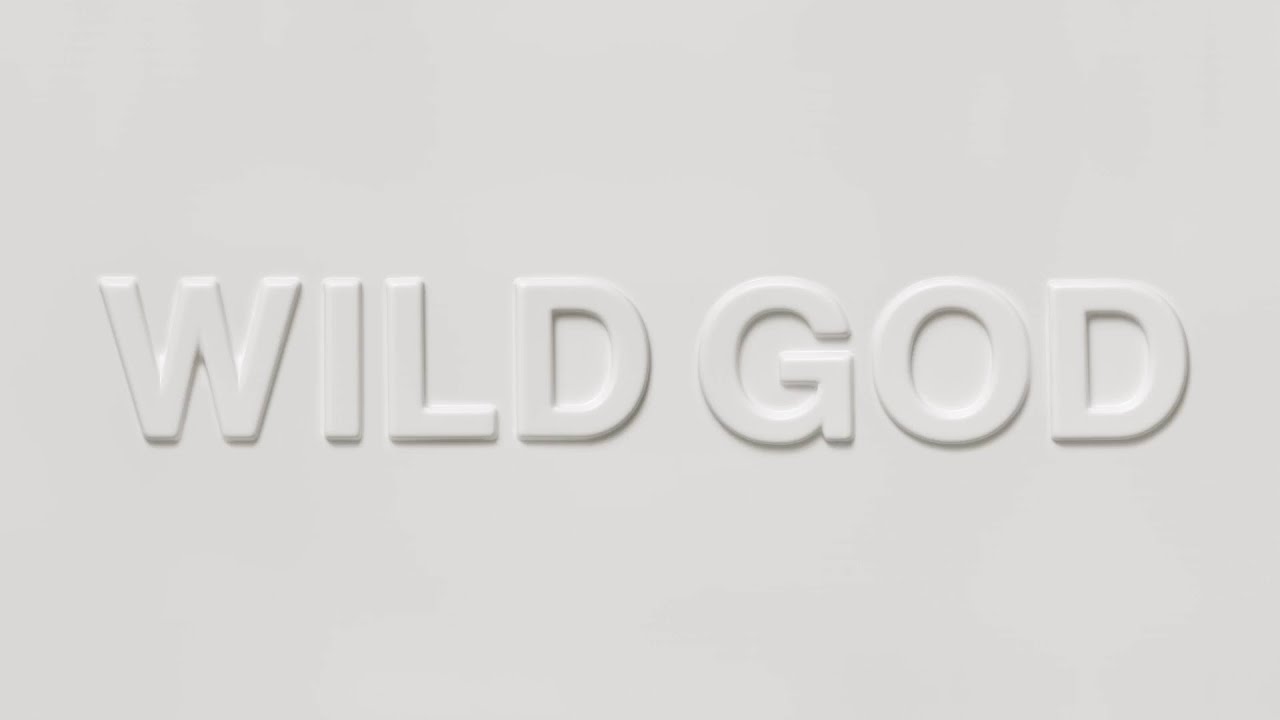“I stepped into an avalanche / it covered up my soul”: so ran the first line of the first album by Nick Cave And The Bad Seeds, From Her To Eternity, released 40 years ago. The vicious cover of one of Leonard Cohen’s bleakest moments might be interpreted as the snarling resentment of the human soul livid that for eternal salvation he must kneel before God “grotesque and bare”, and perhaps too God’s rage that he had to send his son to earth to sort out the sinful humans he’d created. I recently read a disdainful comment that in Wild God, Nick Cave had finally made a Christian rock record. I must admit I found this rather odd – he’s been making Christian rock records for most of his career. Cave’s music, like Leonard Cohen’s, has long explored both the anguish and joyful curiosity that comes with the human quest for spiritual enlightenment.
It was Christianity that got me interested in Cave’s music in the first place. My first Nick Cave record was ‘Into My Arms’, bought precisely because of the religious aspects to the lyricism. I’ve often heard that line “I don’t believe in an interventionist God” sung by fans with an atheist fervour. In my ears however Cave isn’t singing that he doesn’t believe in God, just a particular theological interpretation of the Abrahamic deity (there’s a fascinating article that relates the song to the writings of persecuted theologian Dietrich Bonhoeffer). Around the same time, I earnestly gave my Methodist minister dad a copy of Mark’s gospel with an introduction written by Nick Cave in the hope that perhaps it would help him understand why I seemed more connected to rock music than the works contained within Mission Praise. It’s noteworthy I think that this album is called Wild God, singular, rather than Wild Gods, which might imply a pagan, polytheistic sensibility.
Though they’ve been ever-present, ideas around faith have appeared more frequently in Cave’s work, both musical and written (on The Red Hand Files website and in his book Faith, Hope And Carnage), in the years since the death of two of his sons. It’s impossible to contemplate Nick Cave’s current output without considering these appalling events – it’s often said that the death of a child is an experience that nobody should ever have to go through. I’ve often found Cave’s writing around what happened to his family on The Red Hand Files website so powerful that is has moved me to tears, just as I have listening his interview conversations about loss, grief and faith, especially when he appeared on theologian Elizabeth Oldfield’s The Sacred podcast with Faith, Hope And Carnage co-writer Sean O’Hagan.
Contemporary mainstream pop is frequently extremely earnest and valorises an authenticity of feeling, yet while those who operate in that world are praised for it, I often see Nick Cave mocked or seen as suspect. This is no doubt due to the interpretation of his beliefs as being conservative and Christian, rather than humanistic, left wing or liberal. Frankly my music collection can cope with being ecumenically and spiritually diverse, and anyway, I’ve got skin in this game – literally, as touching a lot of it and feeling the great crushing weight of my supposed sin under Christian judgement messed me right up for years. Cave often gets heat for critiquing the unforgiving judgement and pious moralizing that has crept into discussion of art in recent years. Again, as someone for whom art, and especially music, was a literally life-saving escape from judgement and pious moralising, it has been triggering and distressing to see people supposedly of the creative liberal left behaving like the conservatives they’re supposedly in opposition to.
All of this doesn’t just feed into who Cave is as an artist, his pontificating in interviews, or the lyricism of Wild God, but entirely shapes the music of this fantastic album. This sounds like a record made by someone familiar with the semantics and sonics of Christian worship and is, perhaps shockingly enough, all the better for it – this is where its joy sits. The religious impulse fuelled so much western music until the birth of rock & roll (I love Ian Svenonius’ writing on how the male R&R icon replaced the Christ figure in the horror of the post war USA) and I’ve often felt that it’s a shame that poor old Jesus Christ was left with Coldplay and Cliff Richard asking why the devil should have all the good music. As an aside, I wonder if the explicitly Christian message in the music of Stormzy (who noticeably escapes the kind of opprobrium levelled at rock artists who sail close to faith in their work) has created a space where Cave can do this himself.
I suspect that at some point Nick Cave might have a late-period Scott Walker style boundary-pushing record in him, but for now, Wild God is exactly what you’d expect a Bad Seeds record made by church-going Nick Cave at the age of 66 to sound like – vocally, that wobble and rasp now is what you’re going to get from decades spent smoking snouts and everything else besides. Musically, it is a slow and elegantly-arranged record, which also seems fitting for where Cave is in life. I’ve often felt as if the magnificent Grinderman was a purging of the feral rock & roll instincts of both Cave and his band, a sweaty, horny, fiery blaze that then allowed them to move on. This is certainly the fullest, best arranged Bad Seeds LP since Push The Sky Away, a move forward from the beautifully arid Skeleton Tree and heaviness of Ghosteen.
There’s far more of a free spirit musically here than on those two records. ‘Final Rescue Attempt’ is made up of warm, glowing rushes. ‘Joy’ is a dance of watery drones, piano and then brass as Cave starts singing, “I woke up this morning with the blues all around my head / I felt like someone in my family was dead”. Given all that has happened, it’s an utter gut-wrench of a line but goes on to be a song of absolution (and arguably one of the most personal and simple moments he’s ever written) that grows and grows until he’s singing “For joy, for joy, for joy”. The God of Nick Cave And The Bad Seeds’ older work was excitingly Old Testament, often a deity of wrath and rage and judgement, sending a black cloud over Tupelo and so on. On Wild God, there is the offer of redemption, grace and healing, Cave not occupying the position of secular Christ-like figure of the rock star, but more a generous preacher doing his best to channel scripture and faith for his flock. And from the pulpit, to the praise band. I find it interesting that Wild God is built of the instrumentation that you’ll find a lot of contemporary churches (the gently plucked guitar, keyboards, piano, ringing bells, tinkling percussion, brushed drums, repeated vocal refrains of ‘Cinnamon Horses’ are a case in point) and even delivers it slightly schmaltzy at times, but because it’s the Bad Seeds, this just sounds utterly wonderful, rather than the weak pap that, if I am in a church-going mood, tends to make me seek out traditional hymns or cathedral plainsong over contemporary worship. The use of the gospel backing vocals also feel authentically ecclesiastical, rather than just bolted on, especially in the closer ‘Water Covers The Sea’, just two minutes in length, but Cave’s voice in perfect harmony with the singers, eventually almost disappearing into them. Surrendering the ego is not something you might ever have expected of Nick Cave in his pomp, but that is what Wild God is all about.
The line in ‘A Long Dark Night’ about the appearance of “a flying man with long trailing hair” by the bed, a figure who makes Cave wonder “how could he know, when I did not even know my name?” is exactly what you might hear in a personal testimony during a Christian service. Indeed, ‘Conversion’ could be used in a film scene designed to get people into church. It starts with the description of “a little place in a pretty row / Where we mostly did not go” that recalls the sort of settlement that the Old Testament Nick Cave of the 80s and 90s loved as loci of anguish, fear and doubt – “I stumbled into a city / Where the people tried to kill me / And I ran in shame” from ‘The Hammer Song’ springs to mind. Instead, “old God” appears and unites with a woman with “long dark hair” (surely no coincidence that he’s brought in a familiar lyrical trope) in “mystical” fire to redeem a people from their “looks on their faces worse than grief itself”. Cave and his choir singing “touched by the spirt / touched by the flames” over and over again. I can imagine some former fans baulking at the ecstatic joy of it all. “What’s he doing, smuggling God in there, it’s not right,” they mutter in an amusing reversal of the traditional Christian panic about rock & roll artistes hiding messages from Satan in their songs.
I’ve always felt Christianity is an odder, more outrageously complex religion than most believe. It’s a common mistake of atheists, agnostics, and those merely ambivalent to Christianity to parcel everyone up together, as if monotheism meant a monochrome of belief. If there’s one thing I’ve learned over the years since I dealt with my own prejudices along those lines, it’s that this isn’t at all accurate. In fact, there’s arguably a far greater diversity in Christian belief than there is in the absolutism of militant atheism – the act of faith is complex. If I think of all the Christians I know and interact with, they have little in common except the core of faith. The LGBT+ Christian movement is a fast-evolving, inclusive, dynamic force that I can only see becoming ever more beautifully present in coming years. All of my politics I take from Christian socialism. Other aspects of the religion, especially the intolerant conservative Evangelicalism seeping across the Atlantic and into the big-C-Conservative party and our right-wing media leaves me distressed and afraid to the bottom of my very soul.
I don’t agree with everything Nick Cave writes or says about faith, politics, or the state of the world, but why should I have to? I dislike how so much of our discourse these days seems to demand rigid adherence to an acceptable set of ideologies and beliefs – much as, of course, religion of all stripes tends to. Such thinking, whether secular or religious, is anti-human and anti-art. What Nick Cave’s precise theology is a personal matter for him, and his relationship with whatever his interpretation of God might be. Wild God suggests that there is something in Cave’s relationship to the divine that has not only helped him survive his recent years of trial but has also given him a new connection with his fellow humans. Wild God ends with that dissolving of Cave’s voice and ego into the gospel choir as he sings “Peace and good tidings / He will bring good tidings to all things”. In our fraught times of opinion silos and endless rage, feels like as radical thing as he’s ever said and, while it might be simple and quiet and touches faith, perhaps that’s what we need. “I was just a nasty little guy,” Nick Cave told talk show host Stephen Colbert in a recent interview about those chaotic days under the avalanche. Now, though, where he sang it once he’s hymning it now: Nick Cave has let love in.




